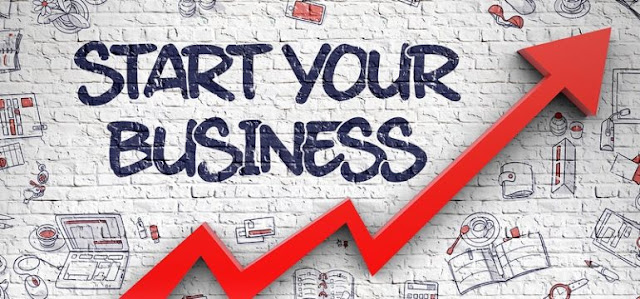 |
| How to Start a Business: Tips and Tricks for New Entrepreneurs |
Introduction
You've decided you want to start a business. That's great! But what now? This guide will walk you through the process of starting a business, from coming up with an idea to getting your business off the ground. Let's get started!
Define Your Business’s Purpose
What's the point of your business? What do you hope to achieve? What are you selling, and who is your target?
These are all important questions that you need to answer before you can even begin to think about starting a business. And it's not as simple as slapping a coat of paint on an old idea and calling it a day, either. You need to be clear about what your business is and what it isn't.
So start by defining your business' purpose. What is it that you're trying to achieve? What need do you hope to fill for your customers? Once you have a good understanding of this, you can start figuring out the nuts and bolts of how to make it happen.
Create a Business Plan
Now, you're ready to create your business plan. This is your roadmap to starting and running your business. It includes all the information about your business, from what it is and who you're targeting to how you'll market it, what you expect your expenses to be and more.
Your business plan doesn't need to be complicated. In fact, the simpler the better. Start with a high-level overview of your business, and then drill down into more detail as needed. But be sure to include the essentials, like your business description, target market, marketing strategy and financial projections.
You can find templates and other resources online to help you create your business plan. And don't hesitate to reach out to a business consultant or mentor for help. They can offer valuable insights and advice about starting and running your own business.
Choose a Business Name and Legal Structure
Here are a few things to keep in mind when making these decisions:
-Your business name should be unique and easily recognizable.
-Your legal structure will determine the amount of paperwork you have to do, the level of liability you have, and the taxes you pay.
-You can change your business name or legal structure at a later date, but it's important to choose the right one from the start.
Obtain Licenses and Permits
Getting licensed and permitted can be a tedious process, but it's necessary if you want to legally operate your business. Make sure that you complete all forms correctly and on time. Additionally, look into any additional requirements or fees associated with your permit or license—some may require extra paperwork or fees for renewal periodically.
It's also important to double-check any restrictions imposed by local ordinances as part of the license process—these can vary significantly from one city or county to another. Be sure to familiarize yourself with all applicable regulations before beginning the licensing process so that you are in compliance from day one!
Acquire Financing
You may need to access financing to get your business off the ground. Finding the right funding can make all the difference between success and failure of your business. It's important to remember that you don't necessarily need a large amount of capital; you just need enough to cover your initial costs.
Start by doing research and crunching numbers to figure out exactly how much money you need. Consider all potential sources of financing, from traditional loans and lines of credit to crowdfunding, angel investors, venture capital, and more. Make sure to budget for any potential fees or interest rates for different types of funding as well.
Taking time to explore your options and understanding the pros and cons of each type of funding will go a long way in helping you launch your business with the most cost-effective source of finance available.
Understand the Tax Implications of Owning a Business
It’s important to remember that owning your own business brings with it different tax implications than when you’re employed. You'll need to make sure you understand the rules and regulations associated with filing taxes as a business owner.
Take the time to research how to stay compliant with federal, state and local laws. If you're incorporating or setting up an LLC, there will be different rules and regulations for taxes than if you're a sole proprietor or partnership.
Additionally, you'll need to set aside money for estimated taxes throughout the year. As a business owner, you may owe quarterly estimated taxes if your net income is over a certain amount. Make sure to research your state’s rules so that you don't get blindsided at tax time.
Bottom line: don't underestimate the importance of understanding the tax implications that come with owning a business—it could save you money in the long run.
Conclusion
So, you've decided to start a business. Congratulations! Starting a business is a difficult but rewarding undertaking. But where do you start?
This article provides a step-by-step guide to starting a business. The guide covers everything from choosing a business structure to registering your business to marketing your business.
If you follow this guide, you will be on your way to starting a successful business. Good luck!
